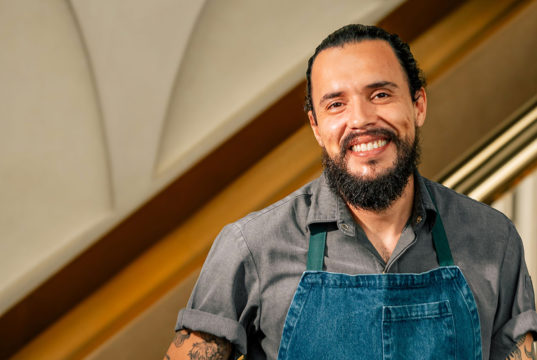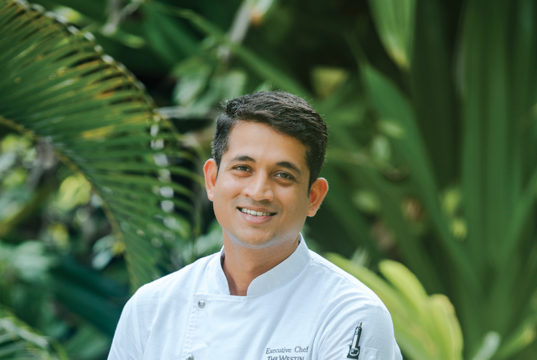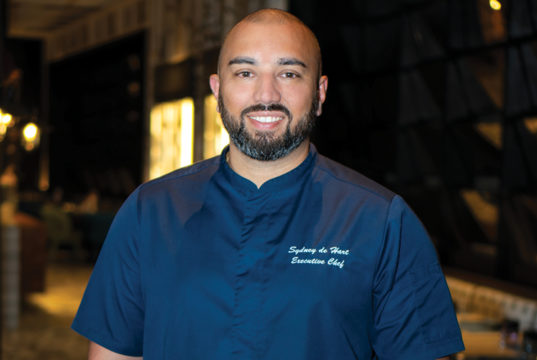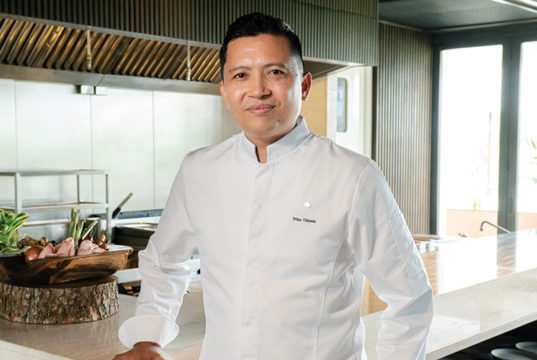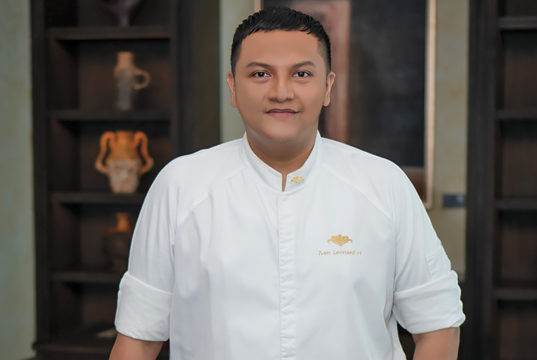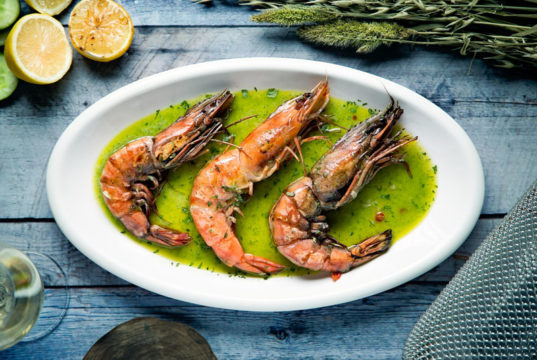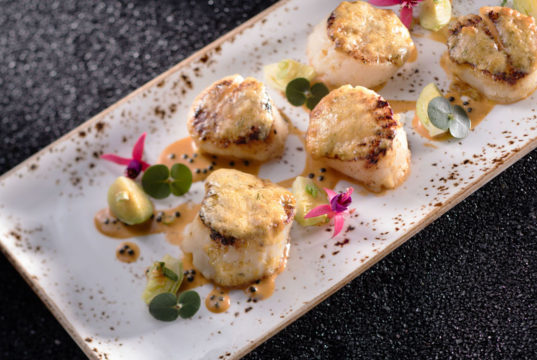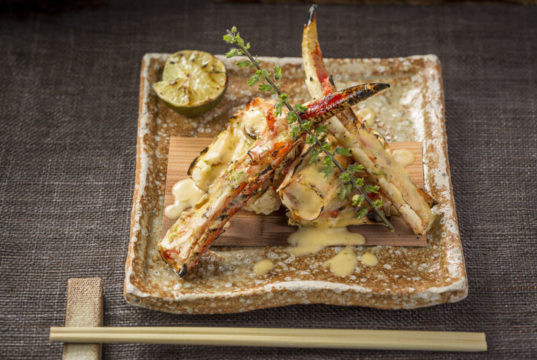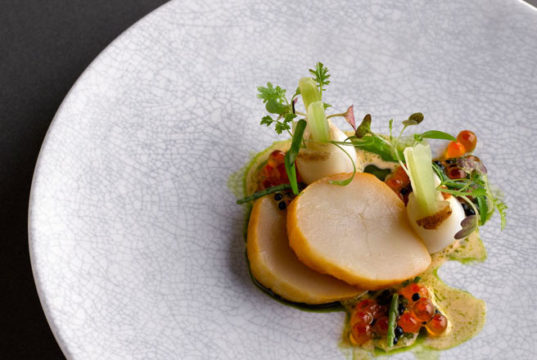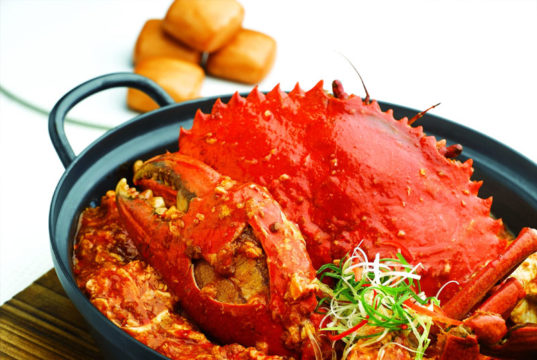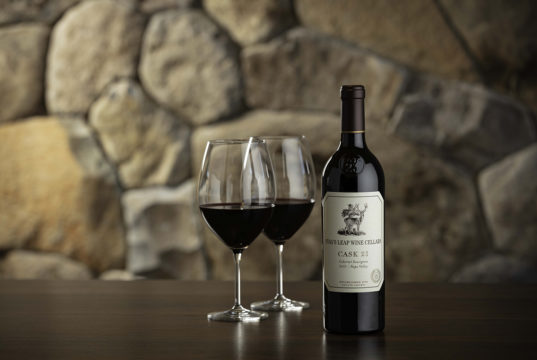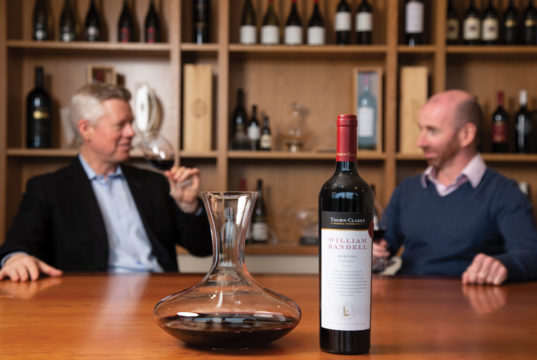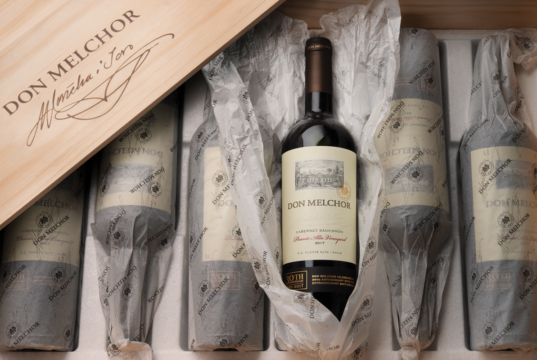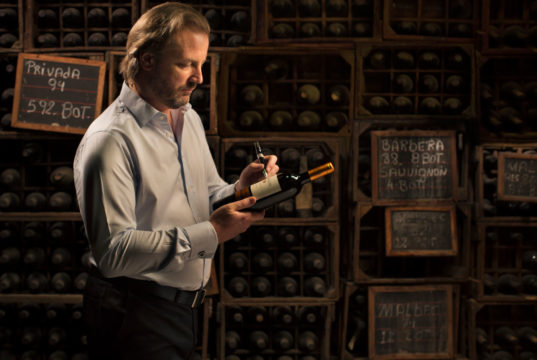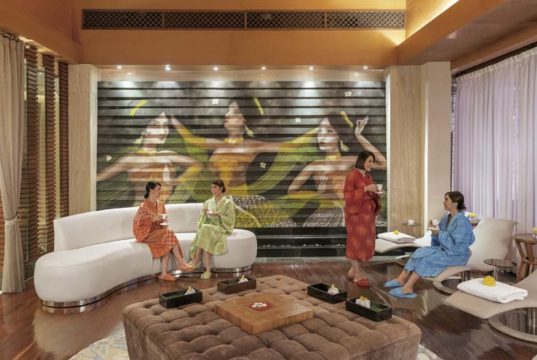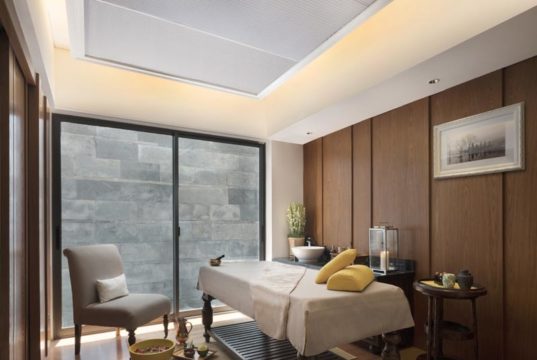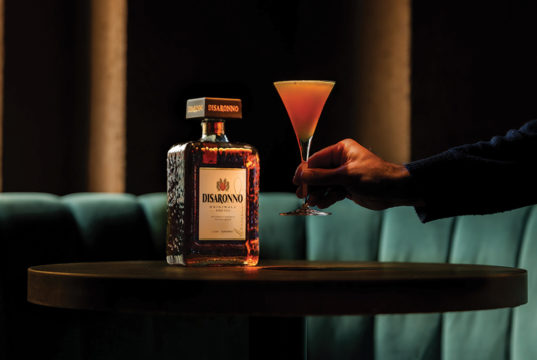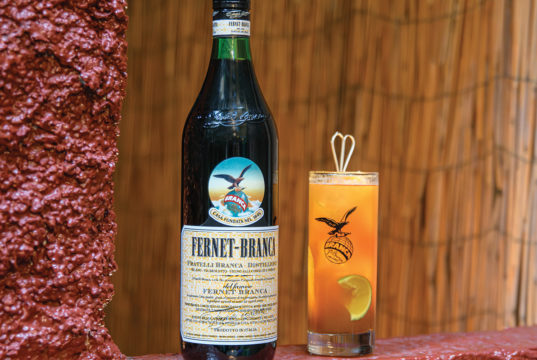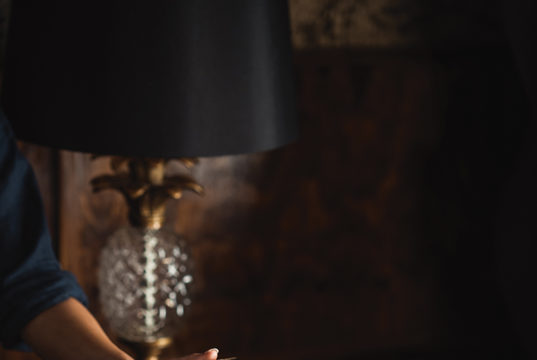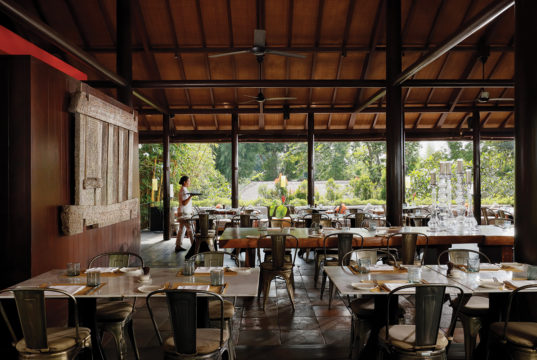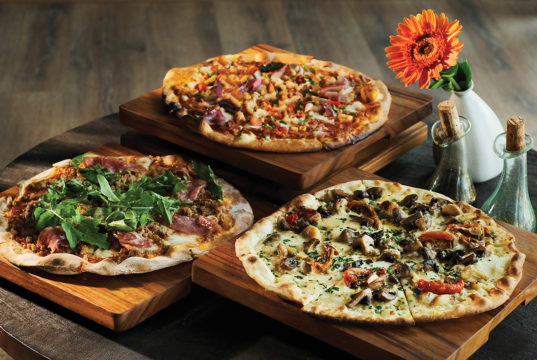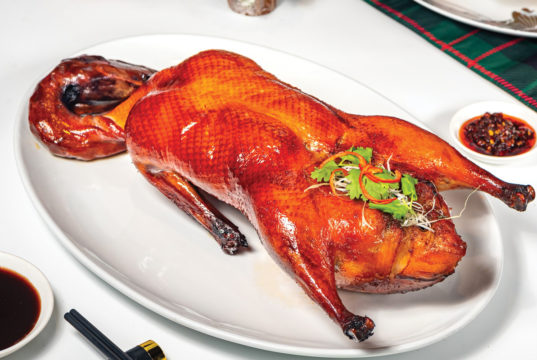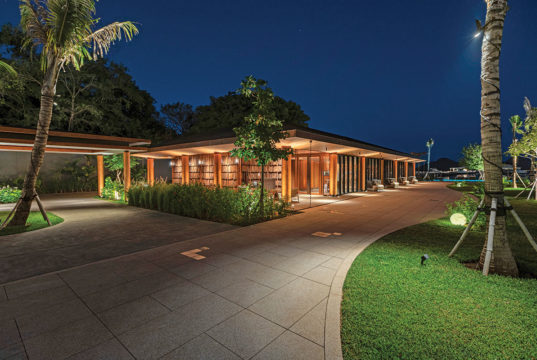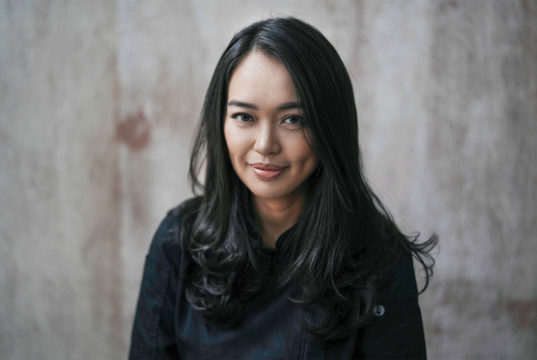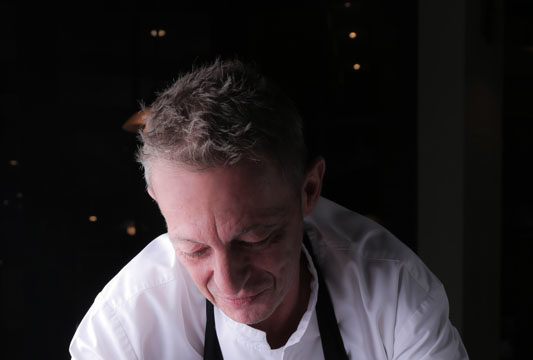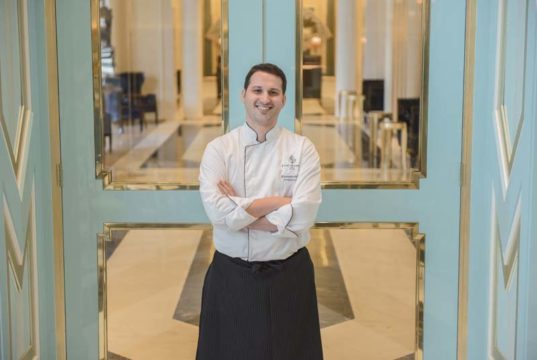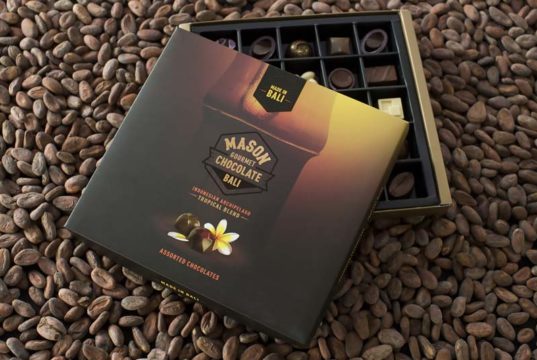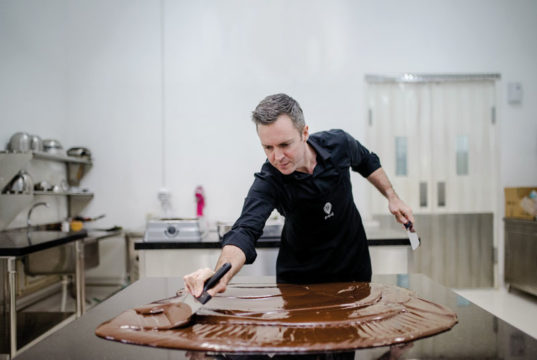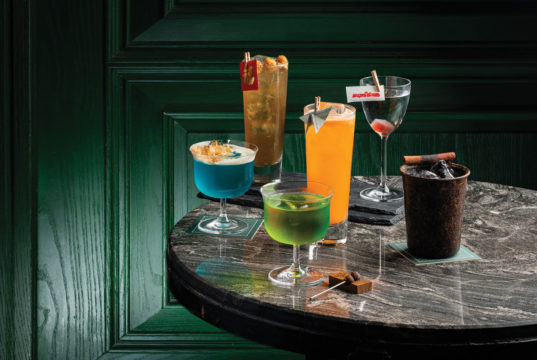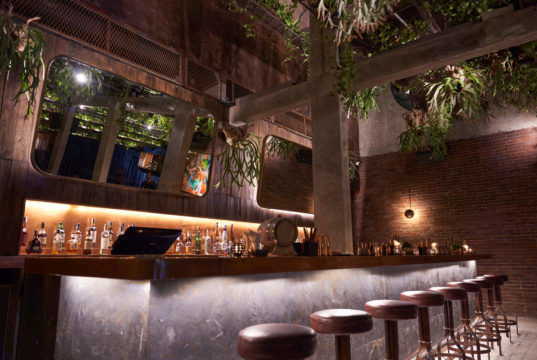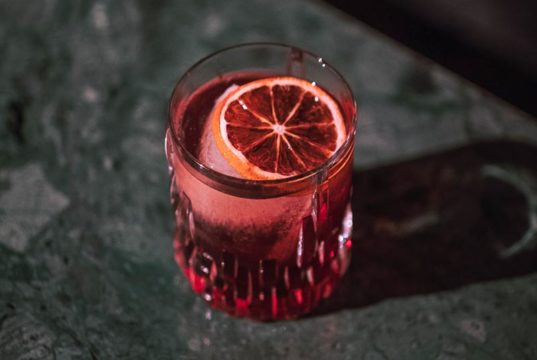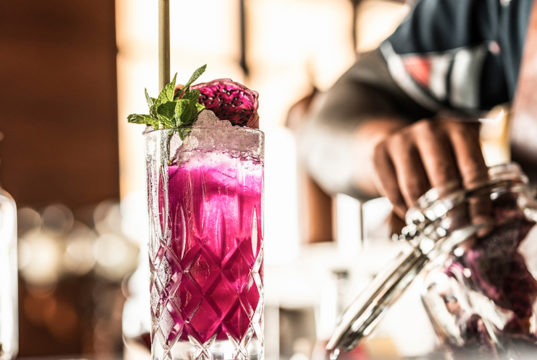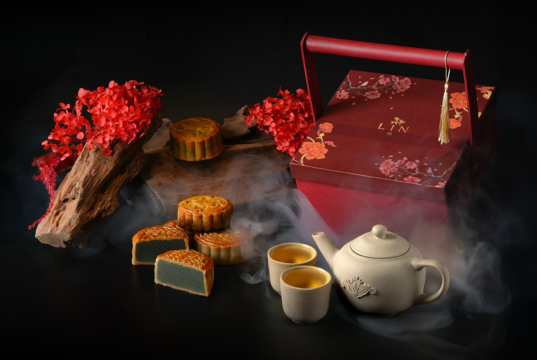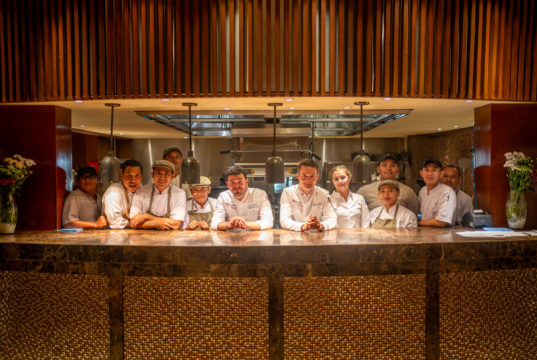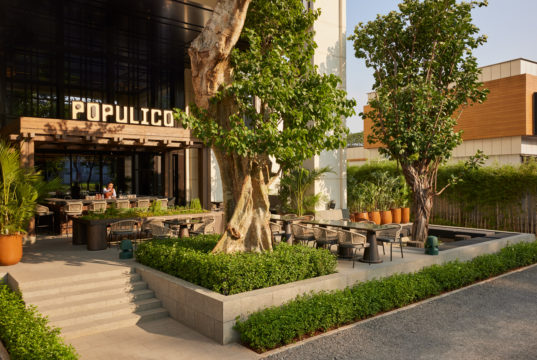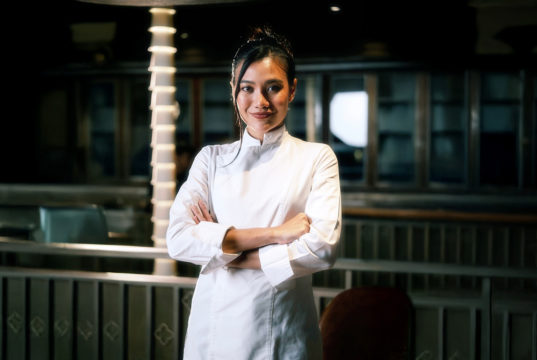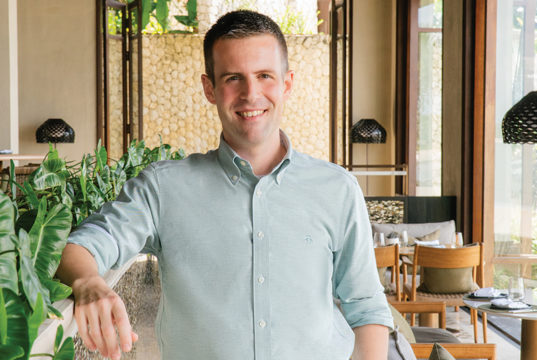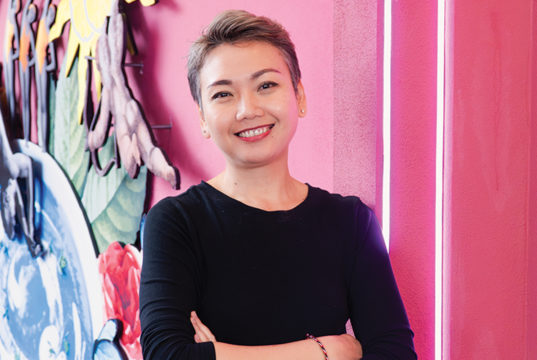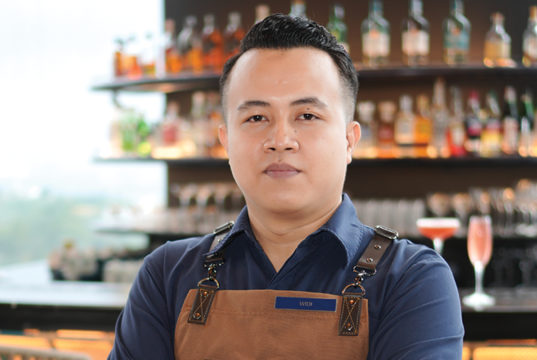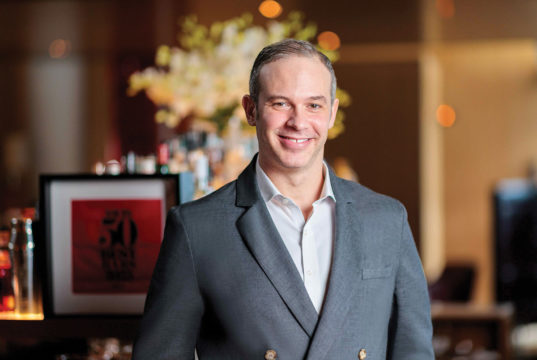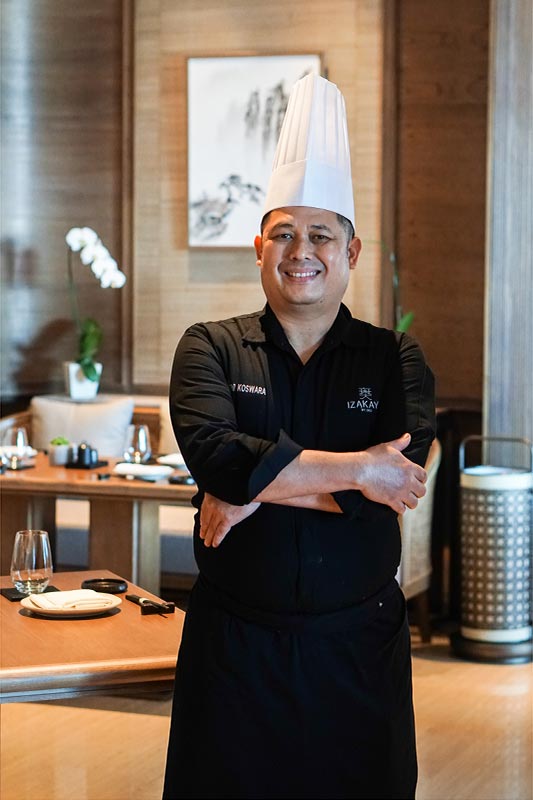Inspired by his grandmother and mother cooking traditional Indonesian food over charcoal in the village, Deni Koswara studied to be a chef and found himself working in the Middle East before finally heading home to Indonesia. Exquisite Taste talked to him about his journey.
E: You’ve only recently moved back to Indonesia from Dubai. How did you end up there in the first place?
Deni Koswara: I was overseas for about 16 years and first moved to Dubai because it seemed like a thriving and rapidly growing location, where everything was available. Whatever ingredients you could imagine, you could access the freshest and the best because it was all imported so easily. I decided it was a good place to start my career.
E: How did you end up specialising in Japanese food, it’s so different from the food that inspired you originally?
D: I started out in the butchery department, but after a year, I was assigned as demi chef for the first Japanese restaurant in Dubai, so I think it was my destiny to specialise in Japanese cuisine. It was so very different from everything I knew. The basics are essential for Japanese food; how you hold the knife, how you cut meat and fish perfectly. If you get it wrong, it completely changes the flavour of the dish.
Some years later, I moved on to The Ritz-Carlton, Dubai, to a pan-Asian restaurant, which was very interesting, so I became involved in various kinds of Asian food, as well as cooking some western food when required.
E: I hear you worked at Nobu, what was that like?
D: I was on the pre-opening and opening team as sous chef for Nobu Doha at the Four Seasons Hotel. I was experienced in traditional Japanese cuisine, but Nobu serves Japanese-Peruvian food, so I had a lot to learn; I wasn’t even familiar with some of the ingredients. It was challenging, but I love to learn.
E: Have you always worked in hotels?
D: Actually, after Nobu, I moved back to Dubai and helped open a restaurant called Kyo. It is a large Japanese stand-alone restaurant that seats 400 people and was very successful. I was chef de cuisine there. It was another new experience that I found very satisfying.
E: So after 16 years, you returned to Indonesia. Why was that?
D: I was invited to become involved with Izakaya by OKU at The Apurva Kempinski Bali, again with pre-opening and opening, which I enjoy. It has been good working with Chef Kaz from OKU Jakarta and exploring the area to source the best ingredients from the farms and fishermen, as well as the suppliers.
I also love to make Japanese food using local ingredients, creating something modern. I’ve made some of my creations for the menus at Reef and Rooftop restaurants here and the feedback from customers has been very good.
E: What are your dreams for Izakaya by OKU?
D: I want this to become one of the best restaurants in Bali!
E: You’re very passionate about your work. What do you most enjoy about being a chef?
D: I am passionate about teaching my team, so that we can all improve. And I enjoy challenges that keep my creativity sharp, like when you suddenly have to create a new multi-course menu, source the produce and cook a perfect meal in just a couple of days!
E: Do you cook at home for your family?
D: Not on workdays! But cooking is my passion, so on my days off I spend time with my family or go to the market and cook at home. My son is 10 years old and he can cook omelettes already, so maybe he will take after me in the kitchen.
E: What advice would you give to someone thinking about becoming a chef?
D: I think being a chef is a good career. There is always something new to discover in the kitchen – new ingredients, new techniques, new plating, so it’s always interesting.
OKU KARAAGE
INGREDIENTS
Karaage Sauce
- 10kg chicken wings
- 2kg leeks
- 600g whole garlic
- 200g konbu
- 20g whole black pepper
- 60g dried shitake
- 4.4kg Yamasa soy
- 1.6kg mirin
- 200g sake
- 3kg palm sugar
- 500g glucose syrup
Karaage Batter
- 210g flour
- 60g katakuriko
- 12g baking powder
- 12g squid ink
- 400g water
OKU Karaage
- 40g chicken thighs
- 10g Yamasa soy
- 20g karaage batter
- 40g balsamic teriyaki
- 1g lime zest
- 3g ichimi powder
METHOD
Karaage sauce base
- Slow roast chicken wings for 1 hour 30 minutes at 180C, then set aside.
- Slow roast garlic and leeks for 40 minutes.
- Heat a large pot, then add roasted chicken wings, mirin and sake. Cook until the liquid has thickened.
- Add palm sugar and glucose syrup, then caramelize.
- Add Yamasa soy, konbu, pepper, shitake, chicken wings, garlic and leeks. Cook over medium heat for 1 hour 20 minutes, stirring constantly to prevent burning.
- Strain. Leave to cool, then store in the refrigerator overnight. Remove excess fat the next day.
Balsamic teriyaki
In a bowl, mix balsamic vinegar and mayonnaise with karaage sauce base, grated garlic and lime juice. Mix well, pack into vacuum pack and reserve in the chiller.
Karaage batter
- In a bowl, mix flour, katakuriko and baking powder well, then set aside.
- Add squid ink mixed with water into flour mixture. Mix then set aside with ice bowl underneath to keep cool.
OKU Karaage
- Clean the chicken thighs, remove skin and cut into 10g pieces.
- Marinate chicken in Yamasa soy sauce for about 2 minutes, then strain.
- Heat fryer to 185C. Fill a syringe with balsamic teriyaki.
- Coat chicken in karaage batter, then cook for 4 and ½ minutes.
- Remove chicken, transfer to a tray lined with a paper sheet and inject with balsamic teriyaki.
- Grate lime zest and sprinkle it and ichimi powder over chicken and plate nicely.
Izakaya by OKU
The Apurva Kempinski Bali
Jalan Raya Nusa Dua Selatan, Sawangan
Nusa Dua, Bali 80361, Indonesia
T: (+62) 3612092288
Exquisite Taste September – November 2019


